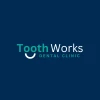The wisdom teeth are the final teeth to erupt, and they are known to cause discomfort for the majority of individuals. It presents issues since your mouth doesn't have enough area for them. They may get impacted (stuck), which can cause discomfort, infection, and other oral health issues. Even if a wisdom tooth isn't causing any pain, it may still need to be removed. Here's what you should know before deciding whether or not to get your wisdom teeth removed.
Wisdom teeth: What Are They?
Third molars are the medical term for wisdom teeth. They are the four adult teeth in the back of your mouth, and they often don't have enough space to come in all the way. Apparent onset is between the ages of 17 and 25, during the transition from youth to adulthood. Some people, meanwhile, may wait until they are 35 or older to have their wisdom teeth. By supporting and stabilizing the jawbone, wisdom teeth help to appropriately disperse the biting pressure during eating. They keep the mouth open while you sleep by holding other teeth in place.
Wisdom teeth are no longer essential, nevertheless, in modern times. The majority of people's jaws are not big enough to accept these teeth because of changes in food and lifestyle. Because of their tendency to become impacted or infected, wisdom teeth might be much of a pain than an advantage even if they occur normally and need removal by a dentist or orthodontist.
What Exactly Is An Impacted Tooth?
Wisdom teeth are especially prone to be impacted, meaning they get stuck between the jawbone and surrounding soft tissue and cannot erupt into the mouth. When wisdom teeth become impacted, they can result in an array of uncomfortable signs, including discomfort or pain around the wisdom tooth, swelling of the gums, trouble opening the mouth, jaw stiffness or soreness on either side of the jaw, and poor breath or taste. Additionally, you can feel uncomfortable when eating or cleaning your teeth.
Taking good care of your teeth and gums is crucial if you want to avoid acquiring impacted teeth. Overcrowding in the mouth, which may cause impaction, can be avoided with consistent brushing and flossing. Regular dental checkups will also guarantee that issues with impacted teeth are identified and handled effectively. Impacted teeth can result in complications if they are not corrected.
Why Are Impacted Wisdom Teeth Removed?
Overcrowding, decay, infection, gum disease, cysts, and challenges with orthodontic care are just some of the issues that may arise from having wisdom teeth.
Overcrowding in the mouth - Other teeth might change position due to pressure from wisdom teeth. Because of the crowding that results from this displacement, cleaning the back teeth may be challenging.Decay and infection risks increased - Failure to properly erupt from the gums or jawbone is a common result of an impacted wisdom tooth. Discomfort and suffering are probable results. Food and germs may easily accumulate around the tooth, which can cause decay and infection.Gum disease - Bacteria may build up around a tooth that is impacted and not able to erupt through the gums, causing an infection. The inflammation and discomfort it causes in the gums might spread from the infected tooth. This inflammation may result in periodontal (gum) disease if it is not addressed. Tumors and Cysts - Infection and inflammation may occur when germs from the mouth infect the soft tissue and bone structures next to an erupting wisdom tooth. If this issue isn't handled, it can spread beyond the tooth and cause fluid to build up in the area, which can lead to a cyst. Tumors and the surrounding bone may both be harmed by cysts.Orthodontic Treatment Complications - Impacted wisdom teeth make it difficult for orthodontic care like braces to be effective. They can result in dislocation and misalignment of the mouth's other teeth. It may create overcrowding, which makes it harder to move the braces and wires across all of the teeth and disrupt the care plan.How Is A Wisdom Tooth Extracted?
Removal of the wisdom teeth may be done under local anesthetic, nitrous oxide sedation, or total anesthesia. Your dentist will create a gum incision to expose the underlying tooth and bone, then remove any overhanging tissue using special devices before removing the tooth. Stitching or sealant is used to close the wound.
How long it takes to heal and what you need to do after getting your wisdom teeth out are factors. Initial symptoms often include bleeding, swelling, and discomfort. Due to the sensitivity in your mouth, you can also have trouble drinking or eating. It is essential to take any pain medications that are prescribed to you by your dentist and to follow their advice for post-operative care.
During the healing process, you should refrain from smoking and using straws to drink. In order to minimize swelling and accelerate recovery, aftercare measures may also include gargling with warm salt water several times each day, using an antibiotic mouthwash, or using an ice pack.
Wisdom Tooth Removal: Risks Or Complications
The removal of a wisdom tooth has several dangers and potential problems. These include sinus issues infection, harm to the surrounding tissue, injury to nearby teeth or nerves, dry socket (when a blood clot does not form at the extraction site), and damage to other teeth or nerves. If the wound does not heal properly, grafting material may be required. A risk associated with issues and adverse effects is also connected to anesthesia.
Conclusion
People with impacted wisdom teeth or those who are susceptible to difficulties often need to have their wisdom teeth removed. The result may be positive with thoughtful preparation and aftercare. Before you decide, you should talk to your dentist about the risks, benefits, and probable issues related to this process.

